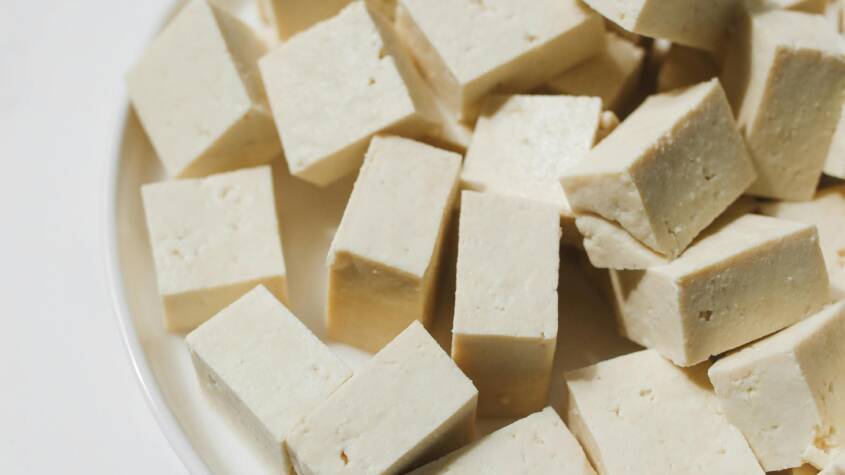
For those exploring a vegetarian diet, finding adequate protein sources is essential for maintaining health and energy levels. WellHealthOrganic.com highlights a variety of vegetarian protein sources that cater to both nutrition and taste. From legumes to quinoa, understanding these options can significantly enhance meal preparations and dietary choices.
Incorporating diverse protein sources can help individuals meet their nutritional needs without sacrificing flavor. Many people overlook the benefits of plant-based proteins, yet there are countless alternatives available that provide necessary amino acids and other vital nutrients.
Exploring vegetarian protein sources encourages creativity in meal planning. By incorporating foods such as beans, lentils, and nuts, individuals can enjoy a balanced diet while embracing a vegetarian lifestyle. Anyone interested in nourishing meals will find valuable insights and inspiration through this blog post.
Essential Amino Acids in Plant-Based Diets
Plant-based diets can provide all the essential amino acids necessary for health, but understanding the differences in protein types is crucial. This section explores complete and incomplete proteins and the strategies for combining various protein sources to meet nutritional needs.
Complete vs. Incomplete Proteins
Proteins are made up of amino acids, some of which are classified as essential because the body cannot produce them. Complete proteins contain all nine essential amino acids in adequate amounts. Animal products, such as meat, dairy, and eggs, fall into this category.
In contrast, incomplete proteins lack one or more essential amino acids. Most plant foods, including grains, legumes, nuts, and seeds, are considered incomplete. Examples include rice, which lacks lysine, and beans, which lack methionine. Despite this, a well-planned plant-based diet can offer sufficient essential amino acids by including a variety of protein sources over the day.
Combining Proteins for Nutritional Adequacy
Combining different sources of protein can help achieve a complete amino acid profile. This method is often referred to as protein complementing. For instance, rice and beans together provide a full spectrum of essential amino acids.
Other effective combinations include:
- Peanut butter on whole-grain bread
- Hummus with pita and vegetables
- Quinoa with lentils
These pairings allow individuals on plant-based diets to cover the essential amino acids without the need for animal proteins. It is crucial to include a variety of foods over the course of meals to maintain nutritional adequacy.
Top Vegetarian Protein Sources
Vegetarian diets can provide ample protein through various sources. The following categories highlight key options to help meet protein needs.
Legumes and Beans
Legumes and beans are excellent protein sources, rich in nutrients and fiber. Varieties such as lentils, chickpeas, black beans, and kidney beans contain about 15-20 grams of protein per cooked cup.
These foods are versatile and can be incorporated into salads, soups, and casseroles. Additionally, they offer essential amino acids and minerals, like iron and potassium.
Including legumes in meals can enhance satiety and support digestive health due to their high fiber content.
Nuts and Seeds
Nuts and seeds provide a concentrated source of protein and healthy fats. Almonds, peanuts, hemp seeds, and chia seeds are particularly high in protein, offering between 5 to 10 grams per ounce.
They also contain vital vitamins and minerals, such as vitamin E, magnesium, and selenium, which contribute to overall health.
Nuts can be snacked on directly or added to dishes like granola, salads, or smoothies for added texture and nutrition.
Whole Grains
Whole grains are an important component of a vegetarian protein plan. Quinoa, farro, and barley contain 8-12 grams of protein per cooked cup.
In addition to protein, they also provide complex carbohydrates and essential nutrients, including B vitamins and fiber.
Whole grains can serve as the base for meals, paired with vegetables and protein-rich legumes for a balanced diet.
Soy Products
Soy products, including tofu and tempeh, are among the most effective vegetarian protein sources. Tofu offers about 20 grams of protein per cup, while tempeh contains approximately 30 grams.
These foods are complete proteins, supplying all essential amino acids. They are also rich in calcium and iron, making them a beneficial addition to a vegetarian diet.
Soy can be used in various dishes, from stir-fries to smoothies, and provides a satisfying texture.
Dairy Alternatives
Dairy alternatives such as almond milk, soy yogurt, and cashew cheese can also contribute to protein intake. Many fortified options contain 6-8 grams of protein per serving.
These products often contain added vitamins and minerals, catering to those who are lactose intolerant or choose to avoid dairy.
Incorporating dairy alternatives into a diet can provide flavor and texture without compromising nutritional benefits.
Zudio Online Shopping: Discover Affordable Fashion Trends Online
Zudio online shopping offers a unique platform for budget-conscious shoppers seeking styli…









